The Black church is one of the most visible institutions in American life, its national leaders’ names nearly synonymous with the civil rights movement from the 1960s to the present day. It’s a powerfully unifying force, with 74% of Black adults identifying as Christian. Before the pandemic, some 40% of those Christians reported attending a church service in the prior week.
Behind that legacy of social justice and faithfulness are prophetic spiritual leaders and theologians, some of them household names, others all but anonymous to the wider world.
The Rev. Jennifer Bailey, founder of the Faith Matters Network, is dedicated to gathering the wisdom of fellow Black Christian thinkers for the benefit of a far broader circle of spiritual social justice leaders.
“Faith Matters Network was really born out of a curiosity about how folks inclined to see themselves as rooted in a social justice ethic were finding and building meaning and community,” said Bailey in a recent interview.
A minister in the African Methodist Episcopal Church, Bailey wants her network to include formally trained clergy from across the spectrum of faith, but also laypeople who have taken on roles of sacred service in faith-based organizations.
Your tax-deductible gift helps our journalists report the truth and hold Christian leaders and organizations accountable. Give a gift of $30 or more to The Roys Report this month, and you will receive a copy of “Hurt and Healed by the Church” by Ryan George. To donate, click here.
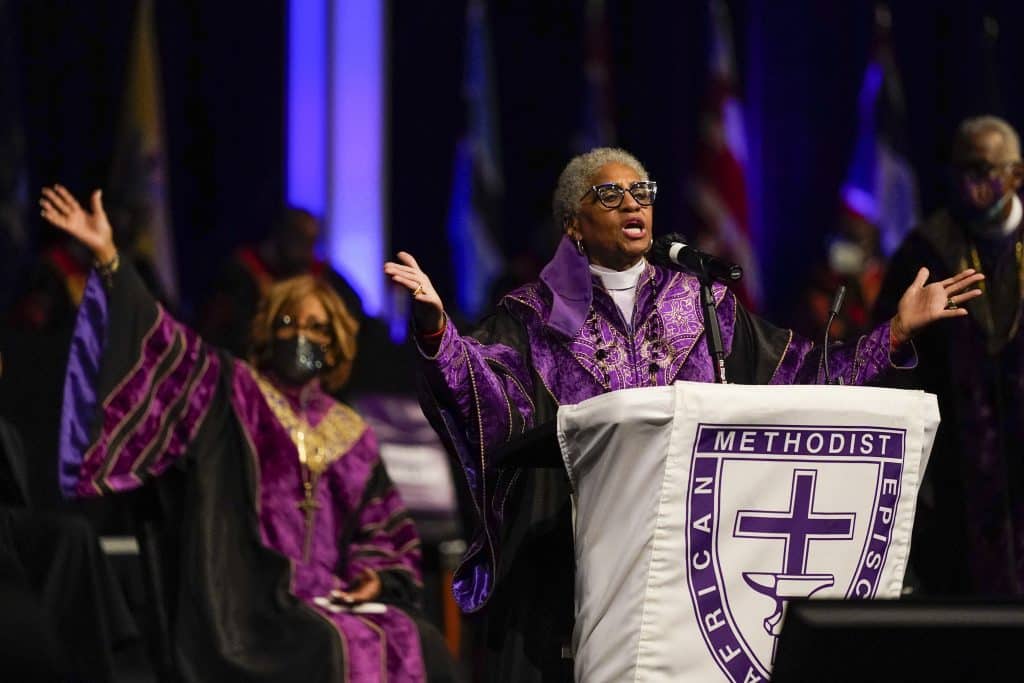
Bailey sees this approach as necessary in a time when religion is undergoing fundamental changes in America, especially among millennials and Gen Z, groups that are often portrayed as having lost interest in religion. “There’s still a deep yearning for spirituality and deep connection and community,” she said, reprising a theme from “To My Beloveds,” her 2021 book on race, loss and what she calls “communal hope.”
“Whether people call the (higher power) God and whether or not they go to services,” she explained, “they are ‘composting’ religion, taking what has been most nourishing and useful and letting go of the rest.”
Bailey grew up in a largely white part of Chicago, a place she writes in “To My Beloveds” that “resists change in the name of tradition and where difference is a deficit rather than a strength.” She wrote that the school playground was its own education, teaching her that “the politics of race is a messy and violent business.”
Rather than succumbing to those divisions, Bailey became a bridge builder.
She began as a community organizer, working mostly on food justice, before and while attending Vanderbilt Divinity School. When she graduated in 2014, she launched Faith Matters Network, working to create “a place of care at the center of social movements, focusing on clergy, community organizers and activists — healing the healers,” she said.
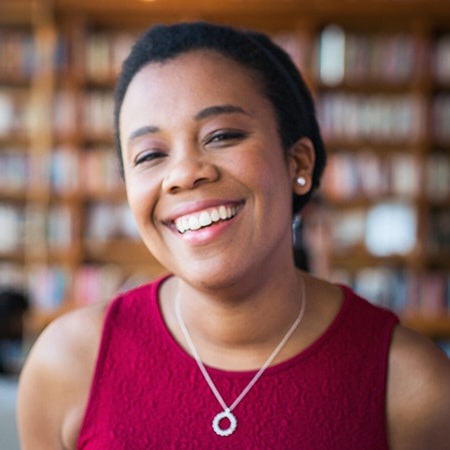
“We are really committed to thinking about how we accompany folks in the work of social justice for the long term, over the course of their lives, and empower them with the tools and resources they need to be committed to that vision of a more just and grounded society,” Bailey said.
In 2016, after a bruisingly divisive presidential election, she collaborated with the grief support organization The Dinner Party, which helps to bring people who have lost a loved one for a meal, to create The People’s Supper. Building on the Dinner Party’s model of growing mutual support out of communal dinners, The People’s Supper facilitates meals for communities facing deep divisions: places torn apart by disasters, racial barriers or politics.
Since 2017, Bailey noted, the organization has convened 2,000 meals in 135 communities to bring “people together across lines of difference to engage constructively on issues affecting their communities.”
Grief and loss of hope, she believes, are key to understanding these lines of difference. “In the United States, there’s a cultural disconnect around notions of death in grief. I tend to see practices that are most helpful to people in the communities of religious minorities, which have a great deal of practice around how we tend to death or loss.”
In the years since the COVID-19 pandemic began, American society has been deluged with grief, but there are also feelings of loss that come from the upheavals in American life. “Right now, in religious communities, we seem to be stuck focusing on what is dying,” said Bailey. “We have much grief. We need rituals to help us with it, so that we can also see what is yet to be.”
In recent years Bailey made it part of her spiritual practice to ask three questions that she first heard at a retreat for activists of color: What is dying? What wants to emerge? And what is blooming beautifully?
“Our society pays such attention to what is dying, to the detriment of realizing that there are things that are emerging right now, or that want to emerge, and that there are things blooming beautifully already,” she said.
The Black church has much to say, and do, about the experience of loss. “In the Black church,” Bailey said by way of example, “we don’t do funerals, but homecoming services. Some last eight hours, filled with music, joy and hope. They help us understand what comes next instead of focusing on what no longer is.”
Recovering from loss is particularly part of the experience of Black women, and Bailey sees wisdom in their lived experience, as people who have suffered deeply and healed from the wounds of life. It’s no coincidence, perhaps, that this time in American history has seen the rise of female theologians and spiritual leaders like Bailey.
But Bailey suggests that religion of every stripe has a place in helping to process loss and discern what comes next. She wants Americans to “recover, repair and reimagine the spiritual resources that our traditions have access to,” whether historically American traditions or so-called minority faiths.
“First comes recovering ancestral wisdom and practices that have been lost or were undervalued,” said Bailey. “Second comes repairing the deep breaches in our interpersonal relationships that replicate destructive patterns. Then we can reimagine our human possibilities.”
This reimagining can happen in a congregational context, at a protest or in quiet ways, said Bailey. “All of it is sacred and holy to me.”




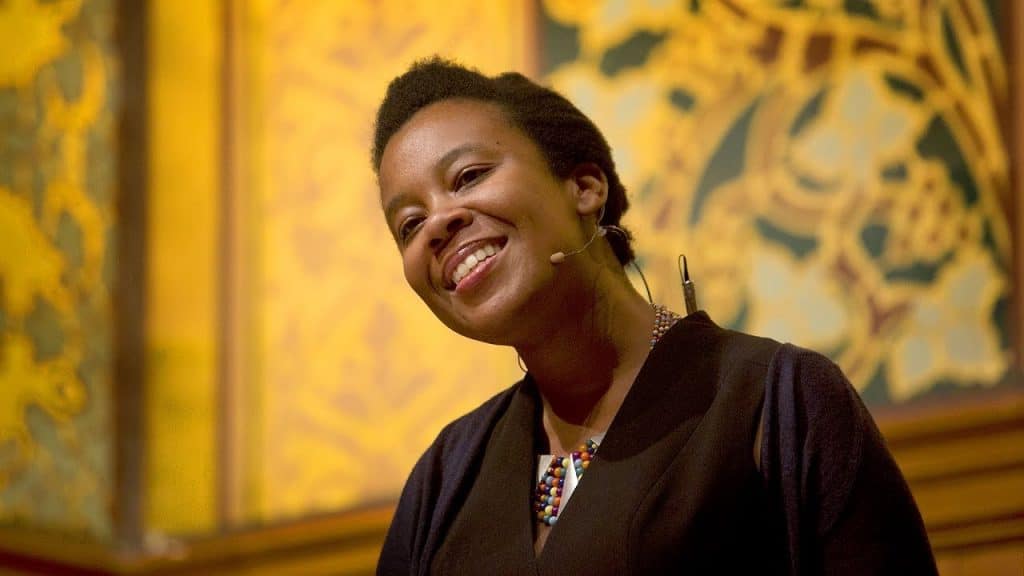
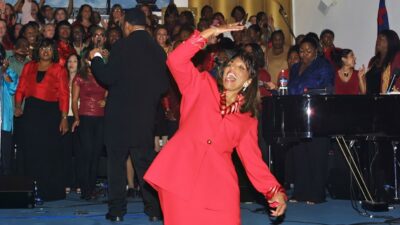
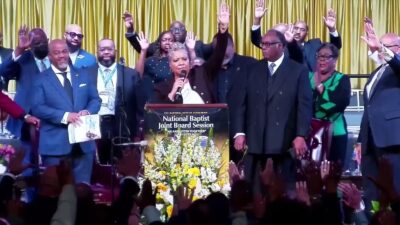
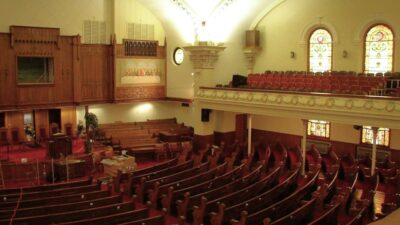

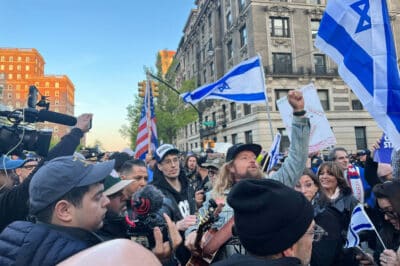
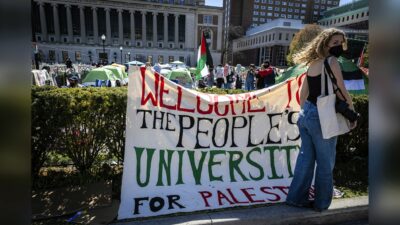


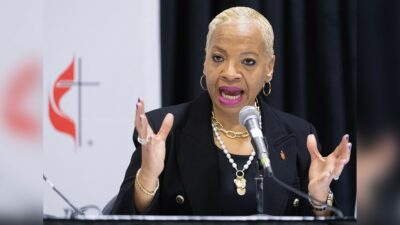






4 Responses
What doctrinal wisdom is being restored exactly? “Human possibility” as Bailey states? “Lived experience” is simply a substitute for the gospel, no matter the ethnicity. Why focus on the racial aspect as though it is magical in some way?
A black, Christian non-profit CEO once asked me directly to guess what percentage of black pastors were seminary trained? 15%. He blamed the black church in particular for lining their pockets and for the breakdown of the urban family unit, also directly. He said with few exceptions the pastors, often husband-wife “teams,” refuse to preach solid doctrine, pay themselves handsomely and instead give health & wealth sermons, while avoiding addressing lack of fathers in the home and the 72% of black moms who opt into out of wedlock births. Too convicting. And lucrative. I know a couple guys personally who fleece their flocks, one black and one white. They both focus on personal revelation and lived experiences like here.
Ethnic Gnosticism sadly continues apace, and hurts the most vulnerable. Read Voddie Baucham’s Fault Lines. He preaches against this kind of ineffectual tribalism, as scripture commands.
Houston –
Your comment comes across as a “let me quote Black people I agree with to validate what I really think.” It doesn’t matter if you know or read books by Black people you agree with; we are NOT a monolith. Just as I can find opinions and books by women across the entire spectrum of feminism, you can find the same among Black people. Validates nothing.
And yes, “lived experience” matters: it trumps whatever books you’ve read and people you’ve talked to. Unless you’ve lived as a Black person, you don’t know.
The reason why fewer Black people are going to seminary is complex: from cost to exclusionary culture (Edward Gilbreath’s “Reconciliation Blues” is a revealing read) to the rise of non-denominational churches that don’t require it. But it should be alarming; many seminaries are OVERWHELMINGLY white, and the mission field is NOT.
And where did this standard for the Black church to address out of wedlock births come from? It’s not relevant to the article, which again leads me to think you saw this as a chance to just rant about “the problems with Black people.” Do you expect white churches to speak on opiod addiction, teen suicide, or mass shootings? (And out of wedlock births are on the rise in white communities too, at ~60% last year).
There is a LOT to be learned from the “learned experiences” of your Black brothers and sisters in Christ. They have shaped our faith, style of worship, understanding of scripture, and approach to everything from grief to social justice; they should be heard, not dismissed as “ethnic gnosticism”.
And may I ask, how much time do you spend in Black communities and churches? You speak as if you are an expert.
“And where did this standard for the Black church to address out of wedlock births come from? It’s not relevant to the article, which again leads me to think you saw this as a chance to just rant about “the problems with Black people.”
He is quoting from a conversation he had with a “A black, Christian non-profit CEO”
” He said with few exceptions the pastors, often husband-wife “teams,” refuse to preach solid doctrine, pay themselves handsomely and instead give health & wealth sermons, while avoiding addressing lack of fathers in the home and the 72% of black moms who opt into out of wedlock births.”
” Do you expect white churches to speak on opiod addiction, teen suicide, or mass shootings?”
Absolutely, this is a morality issue, not a color one. It is the churches responsibility to uphold and teach the values/morals given to us by God, no matter who it might offend. These leaders are to lead by living God’s examples, not by a special set of rules that only apply to them and that allow them to sin. Most of the preachers I hear (white/black/Asian etc …) spend most of their sermons talking about themselves and the important people they hang out with, their vacations, how they need more money, and not the scriptures, challenging themselves or their congregations, with Biblical truth or the real cost of service to God.
“He is quoting from a conversation he had with a “A black, Christian non-profit CEO””
And? It still isn’t relevant to the article. It reads like “I talked to a Black person, and they told me this is the REAL issue with Black people” (then proceeding to ignore what the article addresses).
“Absolutely, this is a morality issue, not a color one. It is the churches responsibility to uphold and teach the values/morals given to us by God, no matter who it might offend.”
I agree. And we need to hold ALL churches to the same standard. When the Black church comes up, comments (on this site and others like it) jump to “why don’t they talk about absent fathers, Black on Black crime, etc”. (I can actually start a whole thread on how these issues are quite exacerbated in the minds of those who don’t actually live in Black communities, but that’s neither here nor there). But go read the comments on articles about white churches; count the number asking why white churches don’t address opiod addiction, teen suicide and the like. You’ll notice a huge difference.